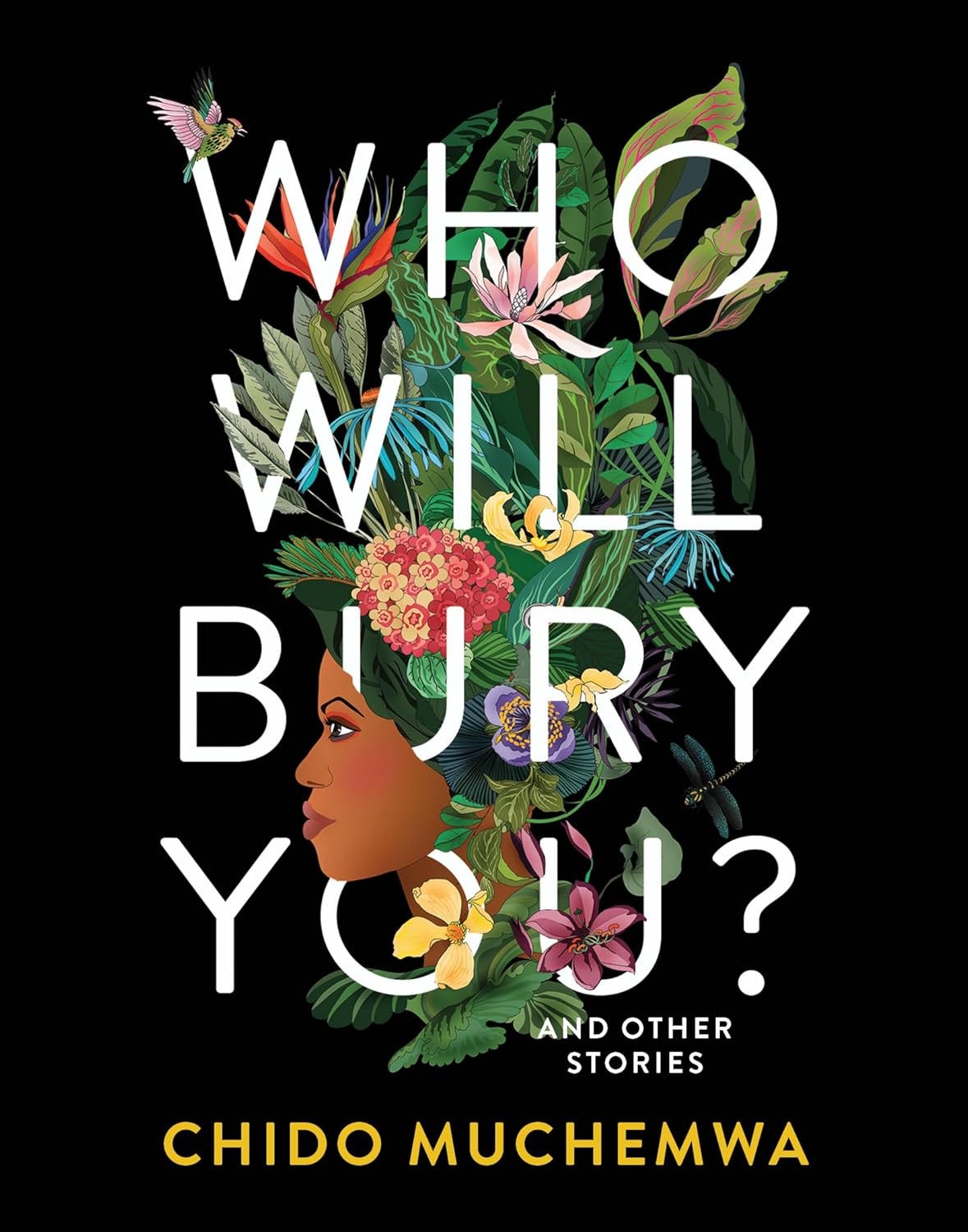On Love, Loss and War
Chido Muchemwa's debut collection of twelve stories explores relationships and community.
Zimbabwe has a rich history of storytelling, with authors Tsitsi Dangarembga, Charles Mungoshi, Yvonne Vera, and more, paving the way for the new generation. I was excited to speak with Dr. Chido Muchemwa, a Zimbabwean author living in Canada, whose writing joins the Zimbabwe literary canon. As an archivist and storyteller, she is forging her own path, writing contemporary and historical fiction. Muchemwa has won numerous awards for her work including the Miles Morland Foundation Writing Scholarship in 2022, the 2022 Bridge Prize and was shortlisted twice for the Short Story Day Africa Prize.
“Who Will Bury You? And Other Short Stories” will be published on October 8th, 2024, by House of Anansi Press. Expertly written, these twelve stories stand-alone but are connected through characters who experience loss, displacement, and complicated familial relationships.
We recently met to discuss her work. This conversation has been edited for length and clarity
Your stories have a theme of loss and death, why did you choose this theme?
My dad died and that shifted my writing. It just happened because it came from the anxiety of being over here in Canada and knowing that if my loved ones died in Zimbabwe, there was no guarantee that I would be able to bury them.
Which story do you love the most and why?
This question is hard because they're all my favorites, but I will pick two. I would say “If It Wasn't for the Nights” because it has an ABBA theme. When I wrote the first two stories of my collection, my sister asked if I would return to Tino (one of my characters) and her mother elsewhere. She also felt that Tino was the kind of girl who would listen to ABBA after a breakup and that was how that idea evolved. It was a revelation to me that people could be so invested in my characters.
My other favorite is “The Last of the Boys” because it took me 10 years to write that story. I had so much learning to do in order to write it but once I got it, I knew that was my lane. Historical fiction is where I'm living now so it's very important for me.
When was the moment you decided to be a writer?
When we were young, my sister was a writer wrote short stories in her journal and the only way I could read them was to steal it. She advised I write my own stories instead. I also grew up in a reading household. Some of the books I loved buying at the flea market were anything by Enid Blyton, the Sweet Valley High series, Nancy Drew, and any stories with girls on the book jacket.
What is your writing process?
The first thing has to be ideas, where do ideas come from? Aside from my sister calling me with her idea, most of my stories are inspired by family members talking about various things and my curiosity about how they found themselves in that situation. I also read Kwayedza newspaper, that’s my absolute favorite paper in the whole wide world.
I am surprised it still exists.
It does and I read it at least once a week. The thing about Kwayedza is that it talks about the supernatural like its normal, just everyday occurrences that are documented in the paper. That helps with the kind of writing I do and where I found stories about njuzu and grave robbers. What fascinates me is reading a story in The Herald in English and then seeing that same story in Kwayedza which is more descriptive. There is something about Shona that gives you the spark in a story.
Congratulations on your short story collection. Are you working on a new project ?
I am writing a novel set during the Chimurenga war. It focuses on three girls living in the village. Two are chimbwidos, one works for a white man, basically they were not fighting in the war because I wanted to show ordinary villagers’ lives.
I did a lot of research on the war and the country at that time, it took me 10 years of speaking to people as well as reading books and archives. Because of the trauma of the war, when interviewing people, I don’t ask directly about it. I ask questions on what were they doing in the 70s, what school they attended and they start opening up. The information about the war is always going to be revealed even when they are talking about their everyday lives.




